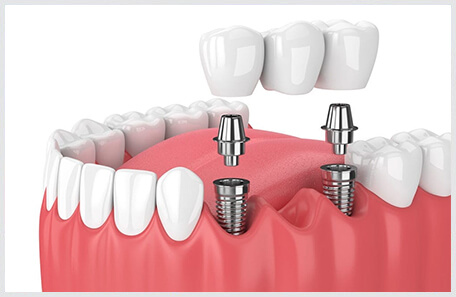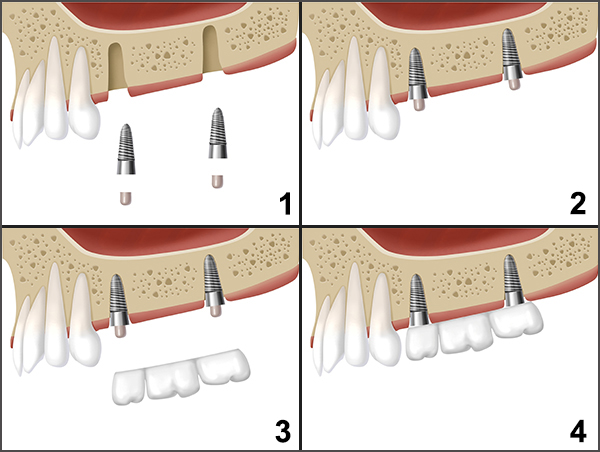What are Implant-Supported Bridges?
These bridges are used to replace multiple missing teeth. Two or more implants are placed in the jawbone, and a bridge is then attached to the implants. The bridge can replace several teeth and restore your smile and chewing function.
An implant-supported bridge is a popular and effective dental restoration used to replace multiple missing teeth. It offers several advantages over traditional bridges and dentures, making it a desirable choice for many patients seeking a permanent and natural-looking solution.

